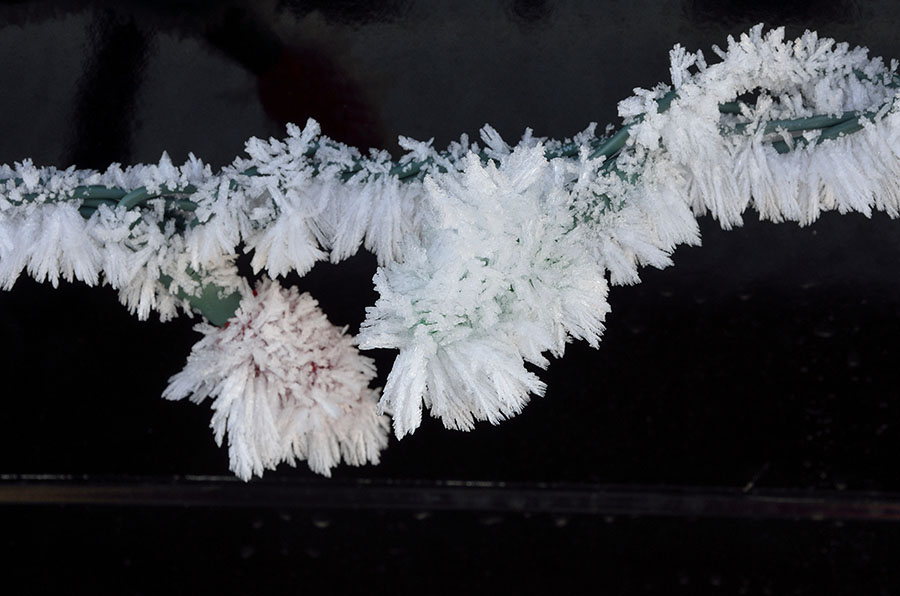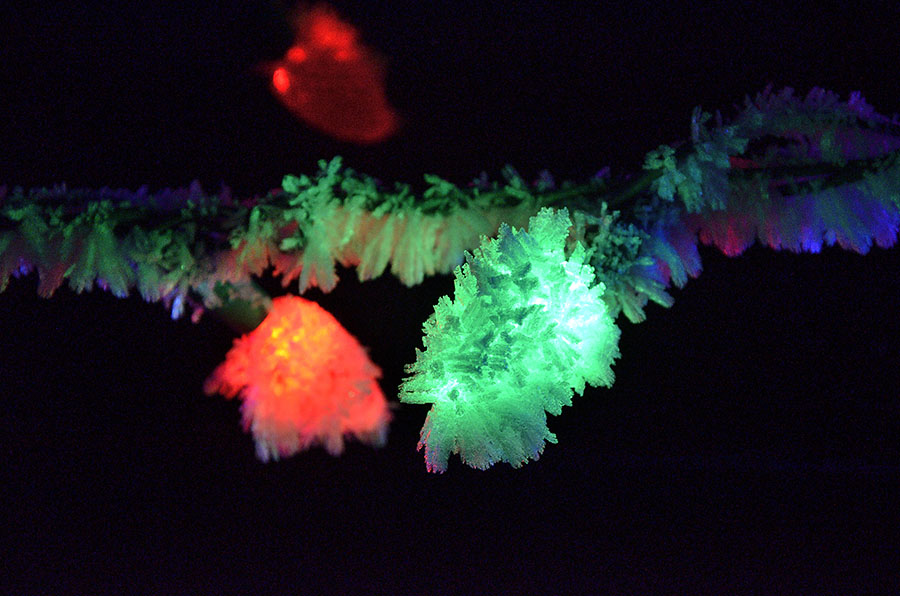I was lamenting the fact that we’ve been having a pretty quiet January – a welcome change after the hustle and bustle of the holidays, but making it hard to find something to Blog about. I’ve been sort of hibernating, doing a LOT of knitting and hoping for snow that actually stays around so we can go out and play in it. We had one beautiful snowfall, but the temps jumped up and the pretty white turned to rain and ice.
We finally had a little Blog-worthy excitement last night. The harbor staff knocked on our boat around 0120 this morning to wake us up and tell us about an active tsunami warning. We tuned to KFSK on the radio to find the normal overnight BBC broadcast replaced by familiar (somewhat sleepy) local voices. At least one of them was awakened by rumblings from the 7.9 earthquake that was centered 175 miles SE of Kodiak.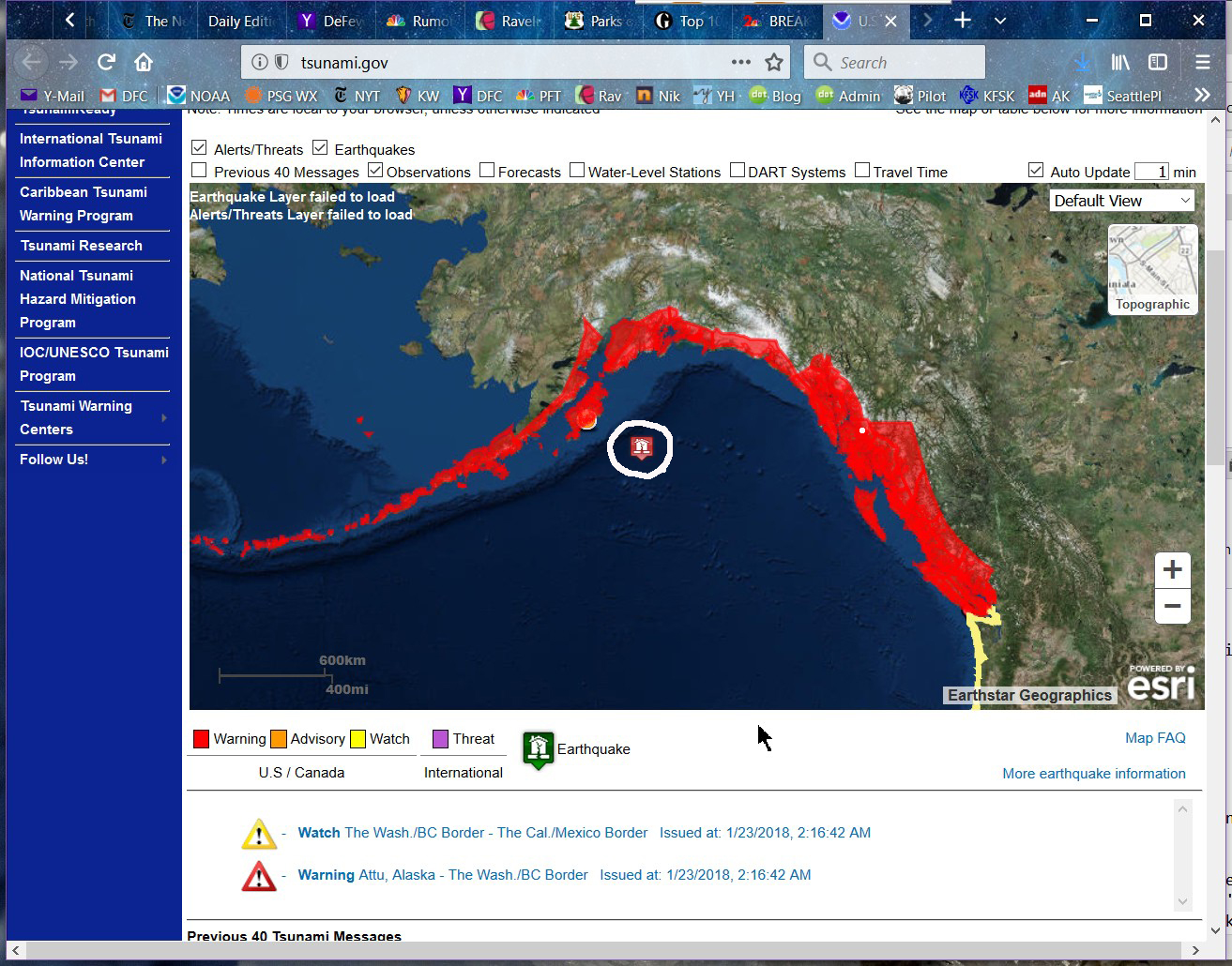 We started pinging tsunami.gov for updates, as well as some of the other NPR stations in more vulnerable communities such as Kodiak and Sitka. Note all the angry red – that’s the area of active tsunami warning immediately after the earthquake. It might be hard to spot, but I put a small white dot in our approximate position near the eastern edge of the red warning area. In theory we should be pretty well protected deep in the inner channels of the Inside Passage, but I’ve learned a long time ago that Nature makes its own rules, and it doesn’t always pay attention to “theory”.
We started pinging tsunami.gov for updates, as well as some of the other NPR stations in more vulnerable communities such as Kodiak and Sitka. Note all the angry red – that’s the area of active tsunami warning immediately after the earthquake. It might be hard to spot, but I put a small white dot in our approximate position near the eastern edge of the red warning area. In theory we should be pretty well protected deep in the inner channels of the Inside Passage, but I’ve learned a long time ago that Nature makes its own rules, and it doesn’t always pay attention to “theory”.
KFSK advised us to prepare to evacuate to high ground if the tsunami siren went off. We dressed in warm clothing and made sure we had our phones, wallets and flashlights handy. We decided that we’d grab our laptops too, if we heard the siren. Fortunately it only takes a few minutes to get to higher ground – everything is uphill from the harbor.
We got the all-clear at 0320 this morning, so we went back to bed and had to read for a while until we felt sleepy again. From our perspective, our community’s response to the threat was just great, and all we lost was some sleep. We’re all so relieved that the more vulnerable Alaskan communities were spared, and we hope things stay that way.

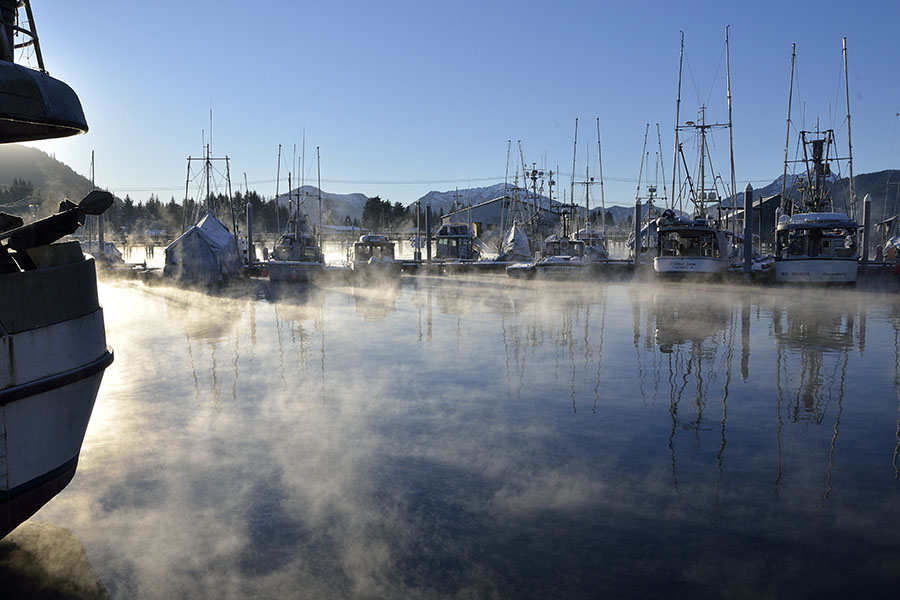 It’s the perfect condition for the formation of hoar frost! Ice crystals start to form, growing every day…
It’s the perfect condition for the formation of hoar frost! Ice crystals start to form, growing every day…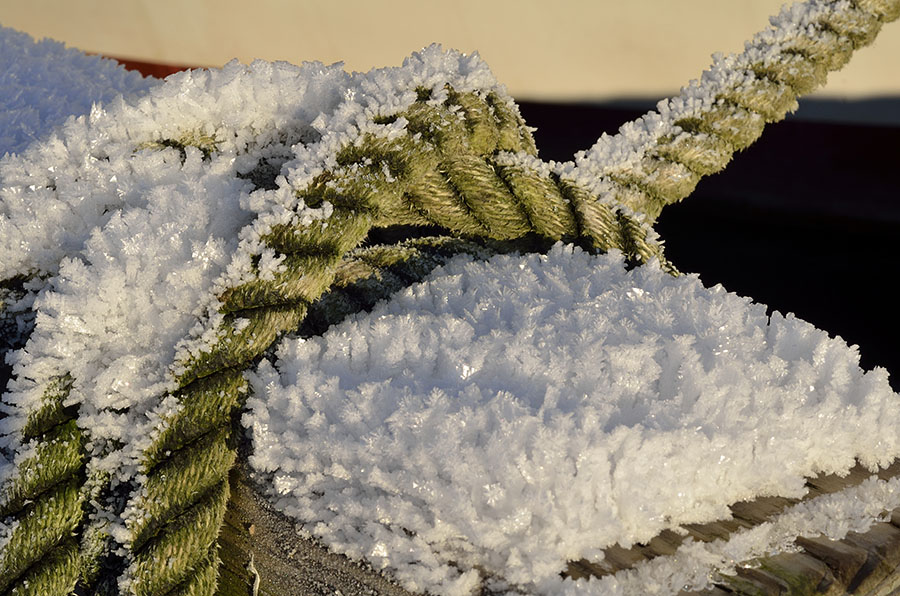 …building layer by layer, making a sparkling diamond-like crust on everything – it’s so beautiful!
…building layer by layer, making a sparkling diamond-like crust on everything – it’s so beautiful!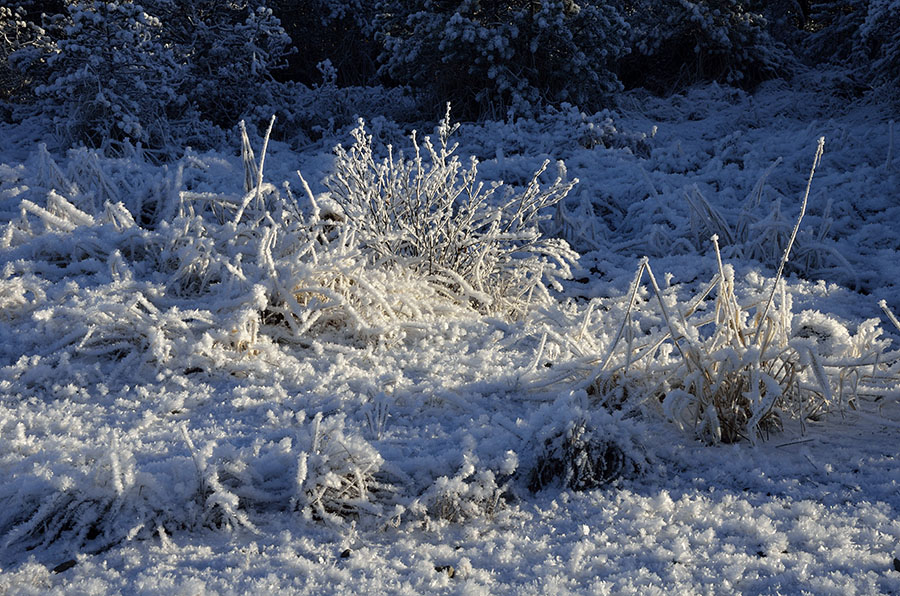 There’s no snow in these scenes – it’s all frost that has grown very thick. The creeks also freeze solid, making it nice for ice skating or for Mother Nature to create interesting patterns.
There’s no snow in these scenes – it’s all frost that has grown very thick. The creeks also freeze solid, making it nice for ice skating or for Mother Nature to create interesting patterns.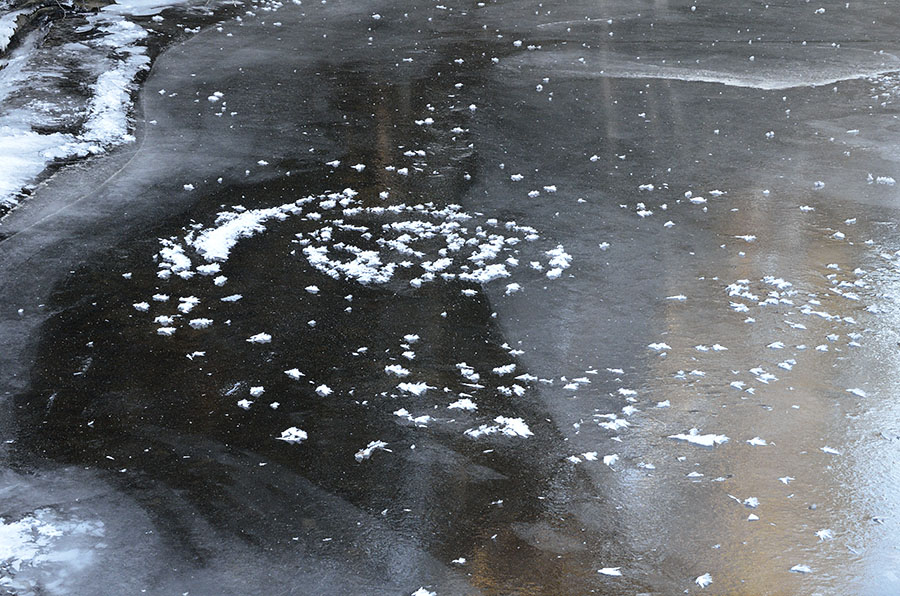 I was pretty cold photographing the frost, but the crystals are breathtaking – delicate prisms, angles, and clusters like flowers – I could have spent hours out there (but I had the sense to go home when I couldn’t feel my hands anymore).
I was pretty cold photographing the frost, but the crystals are breathtaking – delicate prisms, angles, and clusters like flowers – I could have spent hours out there (but I had the sense to go home when I couldn’t feel my hands anymore). 
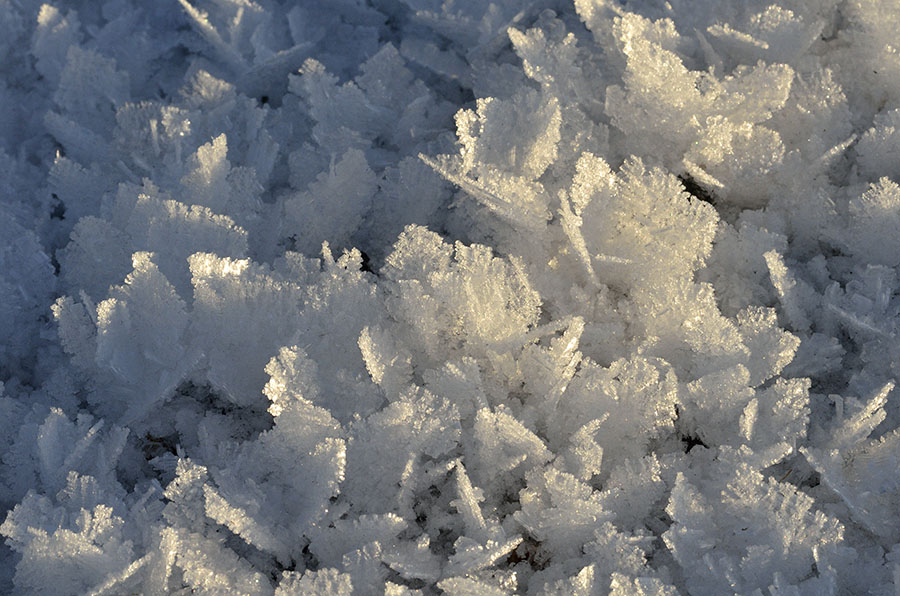 The low angle sunlight made a warm glow on the frosty scenes, contrasting sharply with the deep blue light in the shade.
The low angle sunlight made a warm glow on the frosty scenes, contrasting sharply with the deep blue light in the shade.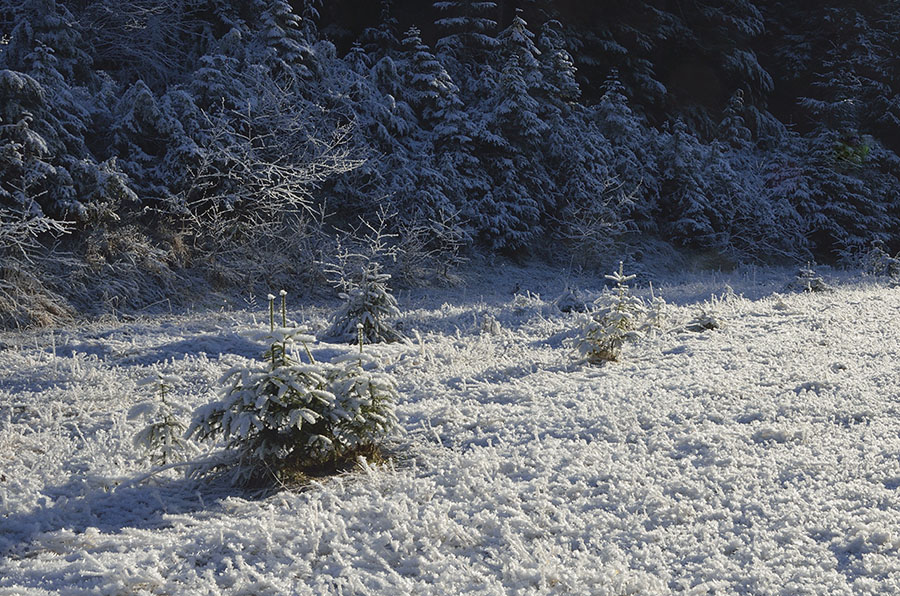
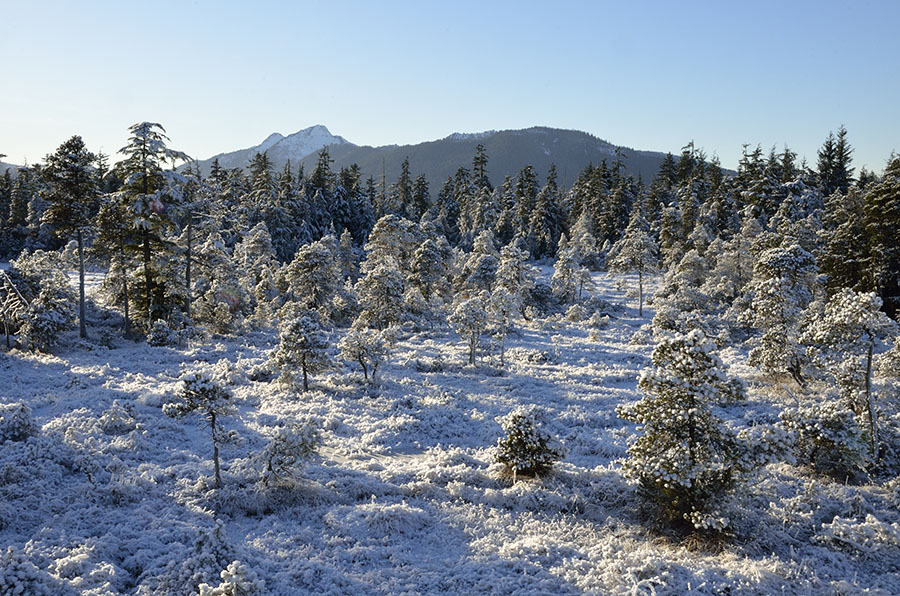 We only get to enjoy these magnificent crystals for a few days, and though warmer temps were a welcome change on New Year’s day, I miss the sparkles.
We only get to enjoy these magnificent crystals for a few days, and though warmer temps were a welcome change on New Year’s day, I miss the sparkles.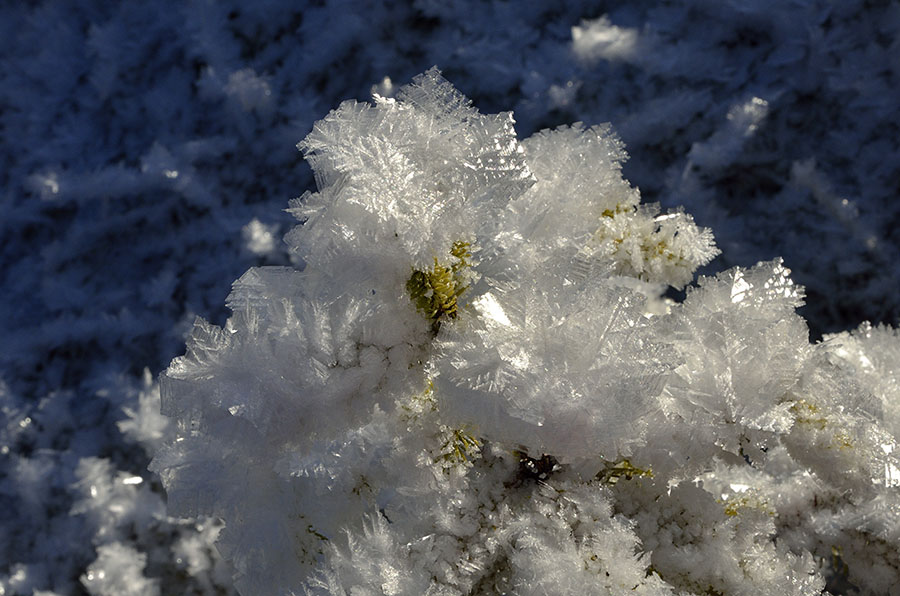
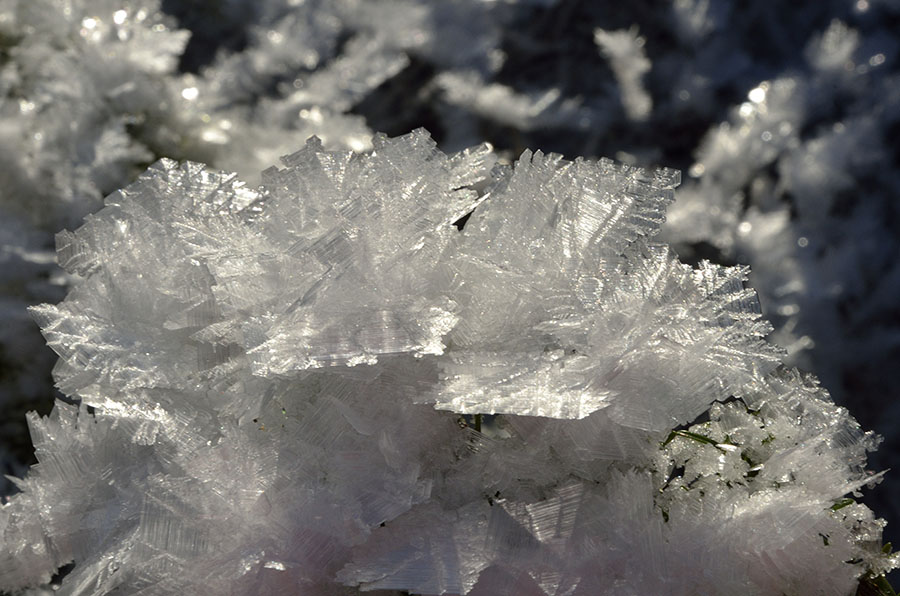 Here’s what the frost looks like on Day 1…
Here’s what the frost looks like on Day 1…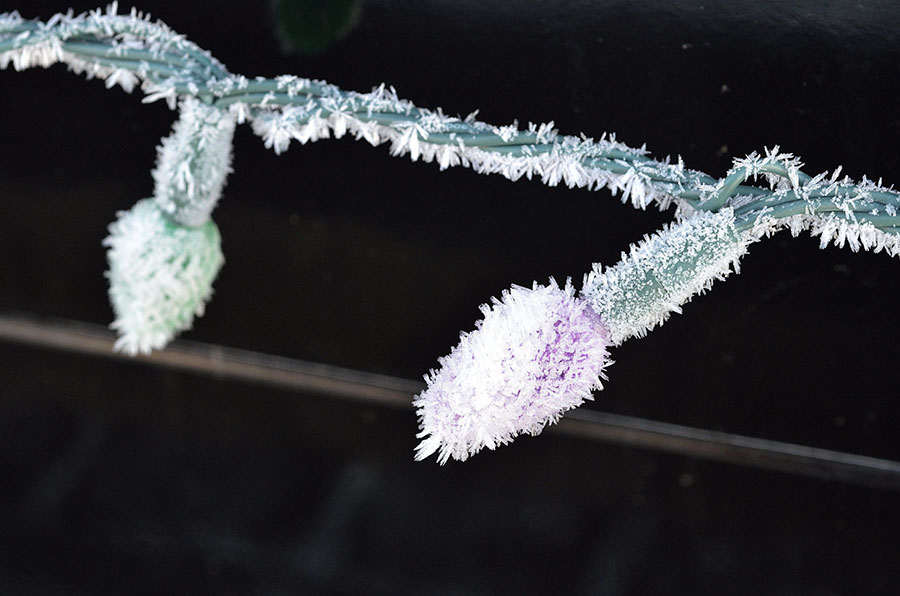 …and here’s how it has grown in just a few days. Stunning!
…and here’s how it has grown in just a few days. Stunning!